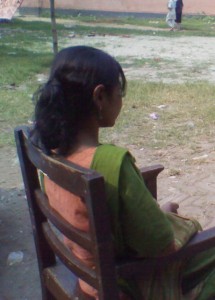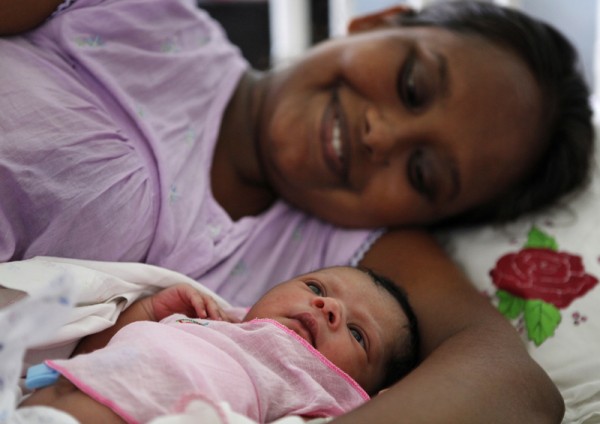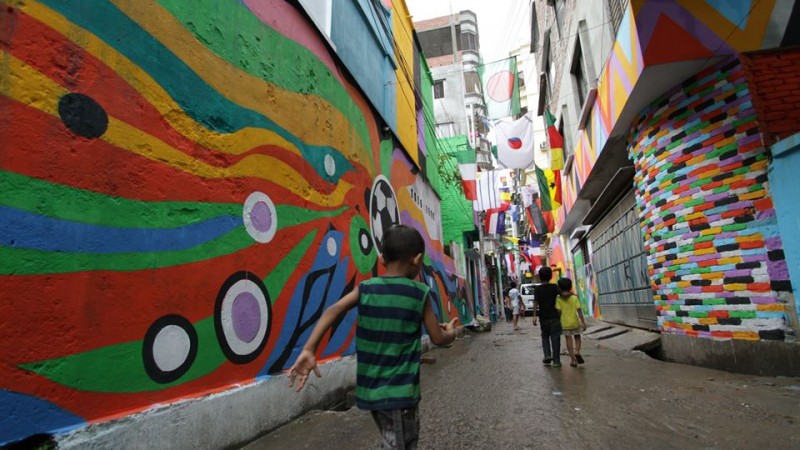Dragonfly
Image by Rezwan
The World Cup Goal-E Project
This street in Bangladesh has a colorful world cup celebration
New Chum Hill Ruins
Remnants of Kiandra gold mine at New Chum Hill, #nsw #australia
November 29, 2011
@eAsia11 The countdown begins for #eAsia2011 conference
Tuesday, November 29, 2011
No comments
Countdown clock at SAARC fountain, Dhaka, Bangladesh. For more info visit http://www.e-asia.org
November 28, 2011
November 15, 2011
An exemplary Protest Against Dowry
For centuries dowry has been part of the social system in many parts of the world and in developing countries it is seen as a financial burden for the bride's family. In several South Asian countries it has been prohibited by law in the past century, but dowry is still widely and illegally practiced.
Each year we hear about dowry-related domestic violence which may end up in the killing of wives by some husbands. A recent protest against dowry is being much discusses and lauded in the social networks in Bangladesh.
11/11/11 was chosen as the dream wedding date of the bride Farzana Yasmin, who works in an insurance company, and the bridegroom Shawkat Ali Khan Hiron, who is a head master of a government primary school. The wedding duly took place last Friday [bn], but during the reception Farzana's in-laws demanded a TV set, refrigerator, motorbike and a few more things as 'gifts' from the bride's family in presence of the guests.
The bride was stunned to see that her new husband was voicing support for their demands and sent ripples across the country by divorcing him right at the wedding. The relatives of the bridegroom tried to solve the dispute into the night but Farzana stuck to her word.
The bridegroom later wrote in a Facebook status that the truth is that his marriage ended and he apologized to the guests. He also claimed that he did not ask for a dowry. He then launched a smear campaign [bn] against the bride on Facebook. Netizens widely protested this and the hate filled posts were later removed.
Farzana explained:
Here is a video of an interview [bn] she gave to local media (uploaded by Priyochannel).
Unheard Voice blog posts translations from the interview:
Kowshik was there during the interview and wrote about it in BDNews24.com blog [bn]
First published in Global Voices.
Each year we hear about dowry-related domestic violence which may end up in the killing of wives by some husbands. A recent protest against dowry is being much discusses and lauded in the social networks in Bangladesh.
11/11/11 was chosen as the dream wedding date of the bride Farzana Yasmin, who works in an insurance company, and the bridegroom Shawkat Ali Khan Hiron, who is a head master of a government primary school. The wedding duly took place last Friday [bn], but during the reception Farzana's in-laws demanded a TV set, refrigerator, motorbike and a few more things as 'gifts' from the bride's family in presence of the guests.
The bride was stunned to see that her new husband was voicing support for their demands and sent ripples across the country by divorcing him right at the wedding. The relatives of the bridegroom tried to solve the dispute into the night but Farzana stuck to her word.
The bridegroom later wrote in a Facebook status that the truth is that his marriage ended and he apologized to the guests. He also claimed that he did not ask for a dowry. He then launched a smear campaign [bn] against the bride on Facebook. Netizens widely protested this and the hate filled posts were later removed.
Farzana explained:
Dowry has become a cancer of society. I've read in newspapers about it and have always wondered why this happens. [..] When it happened right before my eyes, something happened inside me. I felt like speaking up against it and doing something about it.... [..] Maybe I haven't changed the lives of ten people, but I want people to take the lesson that girls can do something.She asked that if she, being an educated girl cannot take this decision, who can?
Here is a video of an interview [bn] she gave to local media (uploaded by Priyochannel).
Unheard Voice blog posts translations from the interview:
So what if I got divorced? I don’t need it. I can live by myself. I can never build a home with a man like this… Girls think once you get married you can never leave. They make comments like, how could she get divorced. Why should I live inside a hell when I know it is… We speak against dowry, but it still happens. If I don’t protest now, another five women will not protest against this… You see all these protests, rallies, but it still continues. This society continues to be ruled by men. How could a teacher ask for dowry? What will society learn from a teacher like that? And he is a government teacher. And government talks against dowry. These people need to be punished, they need to be socially ostracized. I am proud to say I walked out, even though I was dressed as bride.
 |
| Farzana at the interview - by Kowshik |
Kowshik was there during the interview and wrote about it in BDNews24.com blog [bn]
তার যুগান্তকারী ঘটনা শুনছি। ফারজানাকে দেখে সজাগ হতে হয়। এমন সাহসী সিদ্ধান্ত ক’জন নিতে পেরেছেন? যৌতুকের দাবী মেটাতে গিয়ে নির্যাতনের শিকারের ঘটনা আমরা অহরহ শুনি। কিন্তু এভাবে ঘুরে দাঁড়াবার দৃষ্টান্ত বিরল।Kowshik's post attracted many comments. Gias Uddin Bhuiyan congratulated her and said:
Listening to her remarkable story. One has to be amazed by her deeds. How many people can take such a brave decision? We hear about domestic violence related to dowry all the time. But such bold stand is a rare phenomenon.
তিনি যে এই সাহসী পদক্ষেপটি নিয়েছেন তা প্রতিটি ঘরে ঘরে প্রতিটি মানুষের মনে রাখা উচিত এবং সকলের জীবনে তার প্রতিফলন ঘটানো উচিত। শুধু তাকে বাহবা দিলেই দায়িত্ব শেষ হবে না।
Every person in every home should remember this bold step taken by her and the lesson should be applied in our lives. The responsibility doesn't end only by congratulating her.
Pankaj Chowdhury said:ফারজানা তোমাকে অনেক অনেক ধন্যবাদ। তুমি দেখিয়ে দিয়েছ মেয়েরা বাজারের পন্য নয়। মেয়েরাও মানুষ তাদেরও স্বাধীনতা আছে।Muktadir S. Hossain comments on an article in the Daily Star:
Farzana, many thanks to you. You have shown that women are not products at markets. They are also human beings and they are independent.
This is just the beginning. For all those beggars who look for dowry, this is a warning.Manzor H. sarkar writes:
My full admiration for this girl's guts and courage and her decisive refusal to the compliance with this century-old stupid tradition or practice of dowry in our sub-continent. She fully realised what type of marriage was going to be installed. It looked like more to a sale deed rather than a bond of matrimony based on mutual trust and love.The reality is that Farzana is just one odd amongst millions of women who have to live through the ordeals of dowry. When will society wake up?
First published in Global Voices.
November 11, 2011
11/11/11
I hope I will look back at this day sometime in the future:
Related:
* 11ElevenProject
* 11Eleven Facebook Page
* Event in Dhaka on 11/11/11
November 01, 2011
South Asia: Celebrating the 7 Billionth Child
On the 31 October, 2011, the earth welcomed a newborn child named Oishi. Her birth in the Bangladesh capital Dhaka carried a special message - she is the 7 billionth child of the world.
The Editor.net reports:
The website adds:
Journo opined [bn]:
Not only in Bangladesh, similar celebrations took place in many countries of the world. In Sri Lanka UNFPA celebrated the birth of Muthumani, the girl child of Ishara Madushanka and Danushika Dilani Perera.
Similarly in India Plan International celebrated the birth of Nargis as the 7 billionth child of the world.
LiveIndia.Com reports [Hi]:
Translated from Bangla. Original post by Bijoy at Global Voices Bangla.
The Editor.net reports:
The 7 billionth child of the world is here in Dhaka. The lucky parents of the child are Mohsin Hossain and Tonni Hossain. They had hoped for a boy child as their third child. And this 3rd child is the 7 billionth child (symbolic) of the world.It is difficult to identify exactly which child is the 7 billionth one, so a symbolic celebration is happening around the world. UNFPA selected Oishi to carry the honor in Bangladesh.
The beautiful girl child was born on 12:01 AM at the early hours in Azimpur Maternity and Child Care Hospital.
The website adds:
This birth was celebrated publicly - with cake and candles. The hospital was crowded with people who gathered to catch a glimpse of the child. Sponsored by the 7 billion action program, this program was a publicity event.Posha Pakhi at group blog Somewhereinblog.net carried the news with a post titled "The 7 billionth child was born in Dhaka". The post attracted many comments:
Journo opined [bn]:
Welcome the the 7 billionth child from Bangladesh. Hope she will live as an enlightened person.Mithapur wished the child and questioned the justification of selecting her and mentioned jokingly [bn]:
One question: How did they calculate that she is the 7 billionthAtiq cannot tell the difference between 7 billion and 7 billion plus one:
If the line would read -
The world's 7 billion (instead of billionth) children born in Dhaka
It can happen one day, isn't it?
I don't understand all the fuss between 7 billion and 7 billion plus one numbers. Why so much discussion on this? Everybody is born with a number everyday.Although the world cheers at Oishi's birth, it did not cheer her parents much. Because Oishi is a girl child. Her parents wanted a boy this time [bn] (the first two are girls).
My prayers for every one of them.
 |
| Sri lankan mother Danushika Perera cuddling her newly born baby. Image by Rohan Karunarathne. Copyright Demotix (31/10/2011) |
Not only in Bangladesh, similar celebrations took place in many countries of the world. In Sri Lanka UNFPA celebrated the birth of Muthumani, the girl child of Ishara Madushanka and Danushika Dilani Perera.
Similarly in India Plan International celebrated the birth of Nargis as the 7 billionth child of the world.
LiveIndia.Com reports [Hi]:
In Lucknow, the capital of Uttarpradesh state in India, a baby girl named Nargis was the symbolic seven billionth child to be born during the early ours of Monday. She was named as Nargis.Although the growing number of world population has been seen as a wake up call for the world, Muthumani, Oishi and Nargis give us the message that the girl-children should not be neglected in the future.
Translated from Bangla. Original post by Bijoy at Global Voices Bangla.
Subscribe to:
Comments (Atom)


































